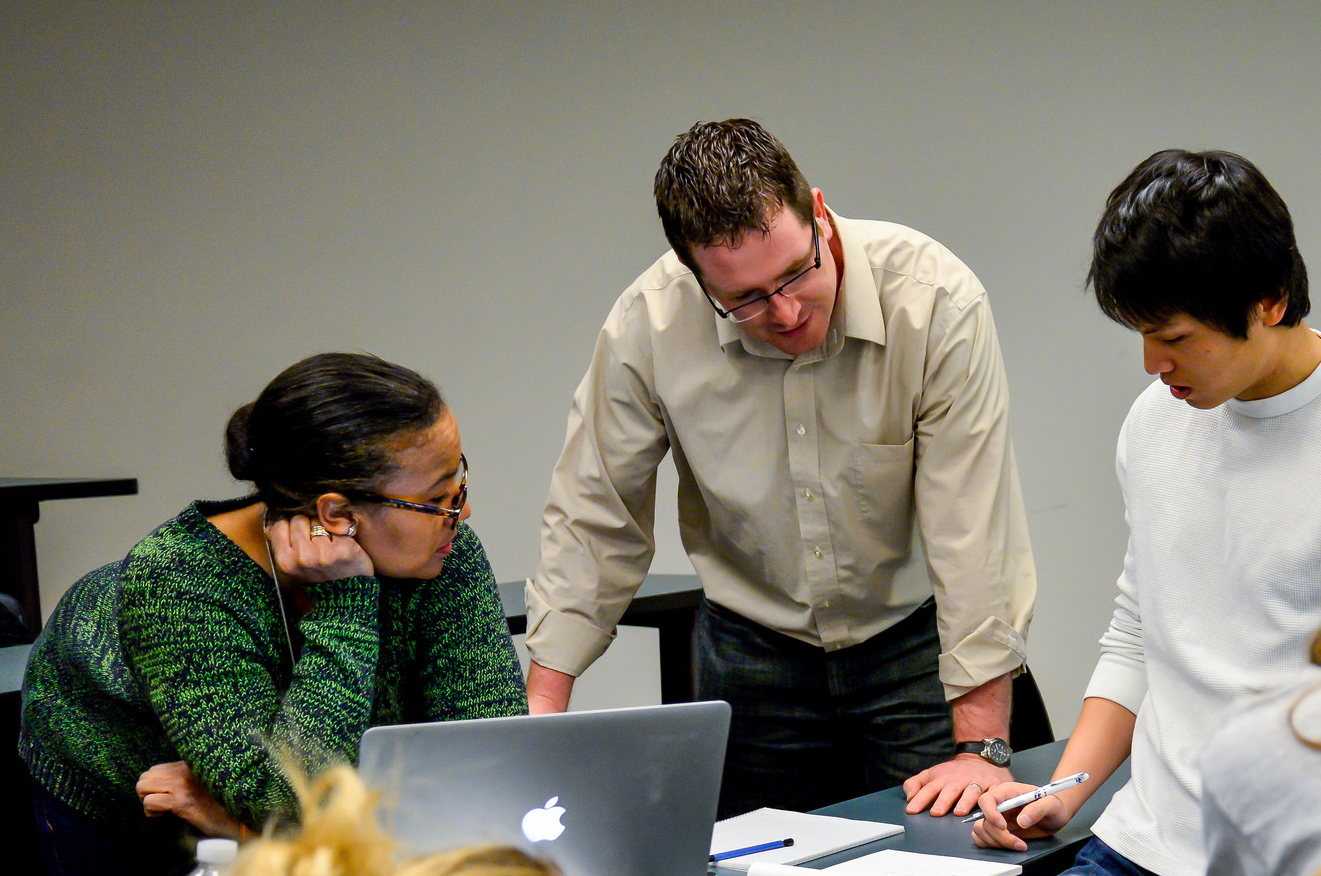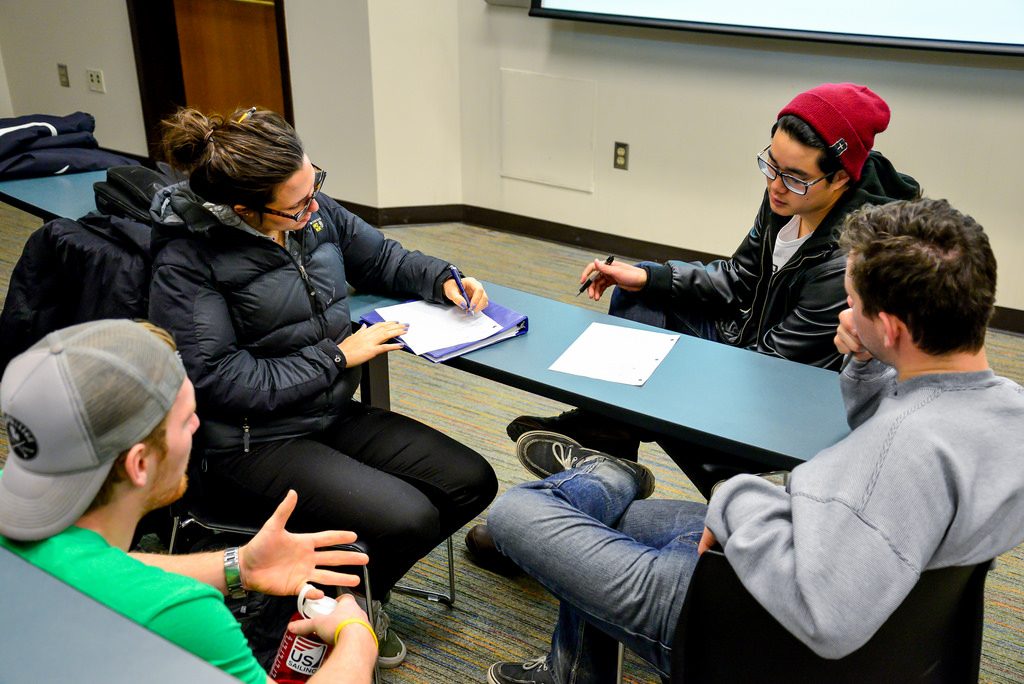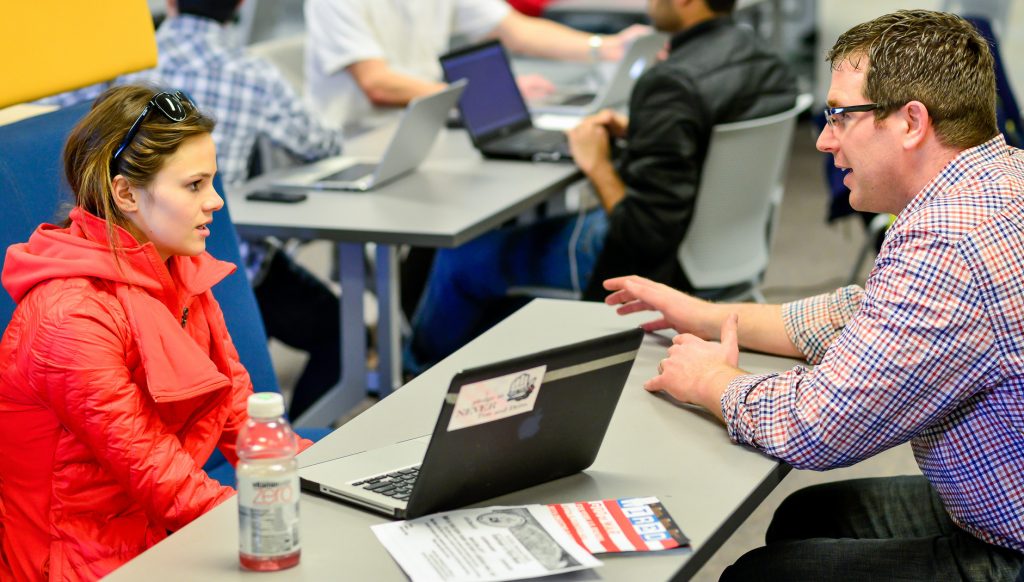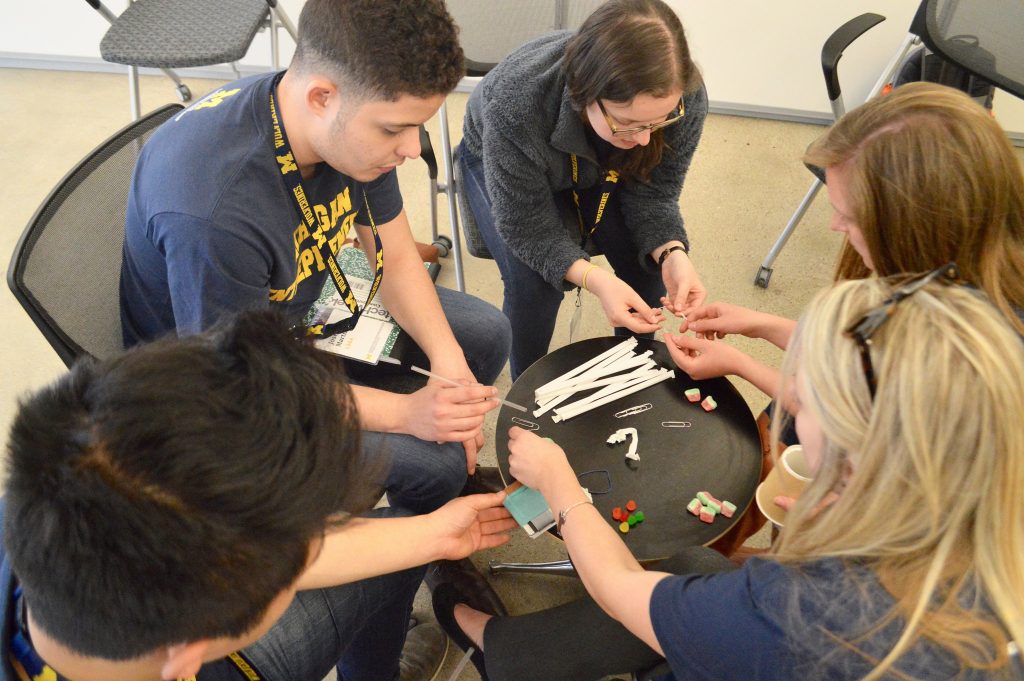
At the University of Michigan Center for Entrepreneurship, we have the opportunity to work with thousands of students every year in our courses and programs. We don’t teach students the skills of entrepreneurship just so that they can launch new ventures. In fact, our approach is exactly the opposite. Our entrepreneurship training helps students develop valuable life and career skills.
Learn by Doing
You can never learn to swim by sitting through lectures on swimming. The same holds true for entrepreneurship; it’s best learned through experience. Within our educational programs, we use venture creation as the vehicle to help students develop an entrepreneurial mindset and skill set, which will serve them in their future projects, their careers, and — for some of them — their startups.
Experience in creating new ventures teaches students a variety of topics including:
- accounting basics
- business models
- communication
- customer feedback
- equity
- fundraising
- identification of market opportunities
- legal entities
- marketing
- mentorship
- networking
- project management
- prototyping
- sales
Spark New Ideas
Sometimes I ask the students in my class this question: “How many of you have a great idea for a startup?” Very few students raise their hands. They are not sure how to tell if an idea is worth pursuing.
Even without an idea, we have found that it’s possible to give students the experience of starting a new venture within an educational setting. In fact, it’s often easier than having them start with their own ideas. We can structure projects as temporary “mini” ventures that focus on particular skills or aspects of a startup. These ventures have all the necessary characteristics of regular startups, such as founders, capital, products, customer interactions, and a testable business model.

Hands-On Entrepreneurial Experience
One of our favorite exercises is a project we call “Scrap Box Ventures.” The name is affectionately derived from an organization in town called The Scrap Box, which sells (as you may have guessed) scraps.
In Scrap Box Ventures, teams consist of three or four students. These student founders have to “raise” $10 any way they want: borrow, contribute equally, contribute various amounts, or find investors. They use their funding to buy materials at the Scrap Box to make a product to sell to actual customers. Their primary goal is to make a profit in three weeks. If they sell some of their product, they can go back to the Scrap Box, buy more materials, and keep selling.
We find that the constraints provide focus and increase their creativity. Going to one specific store to find something you can make and sell turns out to be simpler than coming up with the idea to sell anything. In addition, since it’s not one of their personal ideas for a venture, they tend to be more open to learning and pivoting along the way.
Throughout the project, we have students update a business model canvas for their venture. We teach them to identify customers and their specific characteristics. They may pivot to new products or customers. We challenge them to try new channels, such as selling online or trying to get their product in a local store. We ask them questions such as, “Is there anyone willing to pay five times your current price? Where can you find that customer? What do they value?” Students document their progress through photos and videos. They track their costs and revenue in a simple spreadsheet.
Teams typically make about $20-$250 profit over the course of the venture. Afterwards, they need to decide how to split those profits. Do they keep re-investing in the venture, split the profits, or pay each team member back? This structure provides a safe way for them to learn about common challenges of co-founding and running a venture.
You can watch some team videos here:
Self-Discovery through Entrepreneurship
One group of students was very successful selling maize and blue hair bows before a Michigan football game. They came back to class thrilled to report that they made over $40 in one hour. I asked one of the team members if he was proud of their venture. “I love it!,” he exclaimed.
I asked him whether he would have taken the class if he knew that he would be selling hair bows. His reply revealed a part of his entrepreneurial journey. “Definitely not, but this experience has been a highlight of my college career.”
For many students, this venture creation assignment is their first time making and selling something. The experience of creating and capturing value — one of the most fundamental aspects of entrepreneurship — can be transformative. That transformation into entrepreneurial thinkers and doers is the reason why experiential entrepreneurship education is so valuable for our students.

 Matt Gibson is the Director of Educational Programs at the University of Michigan Center for Entrepreneurship. More of Gibson’s entrepreneurship exercises and assessments are available here.
Matt Gibson is the Director of Educational Programs at the University of Michigan Center for Entrepreneurship. More of Gibson’s entrepreneurship exercises and assessments are available here.
